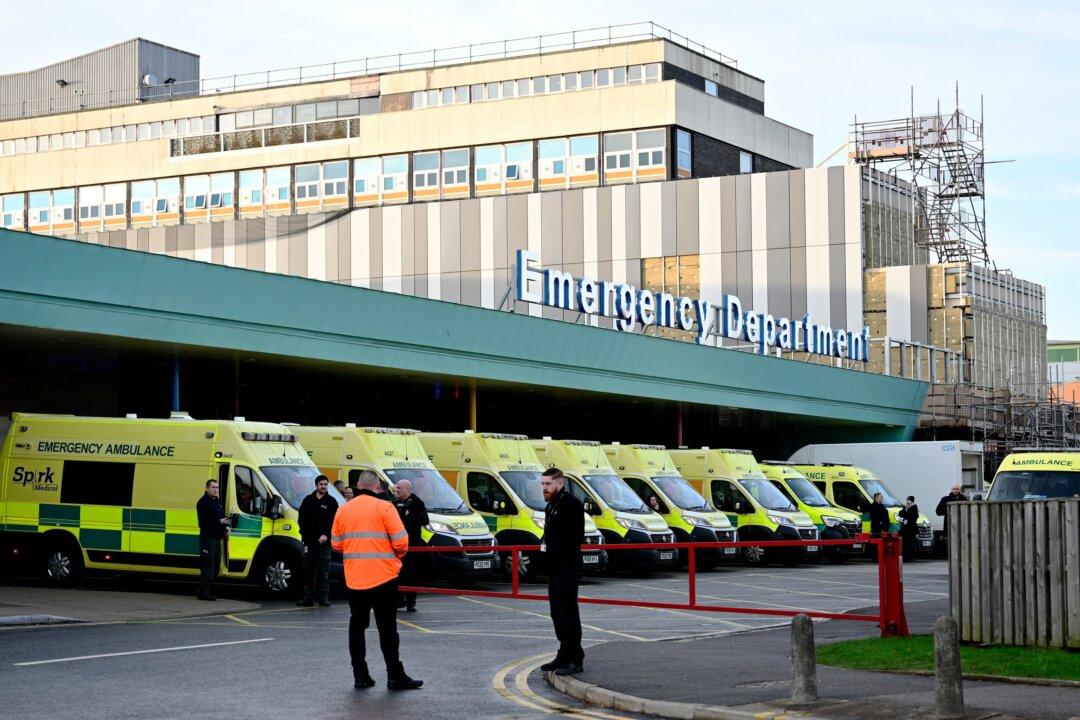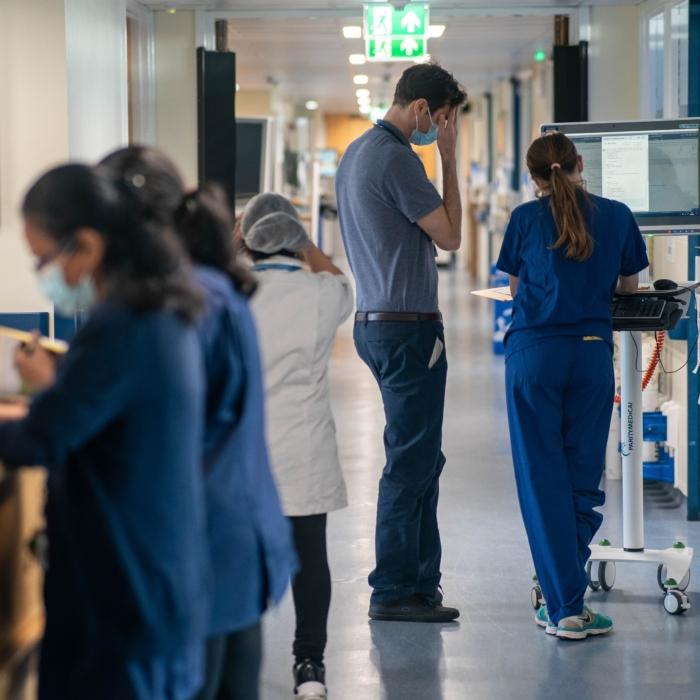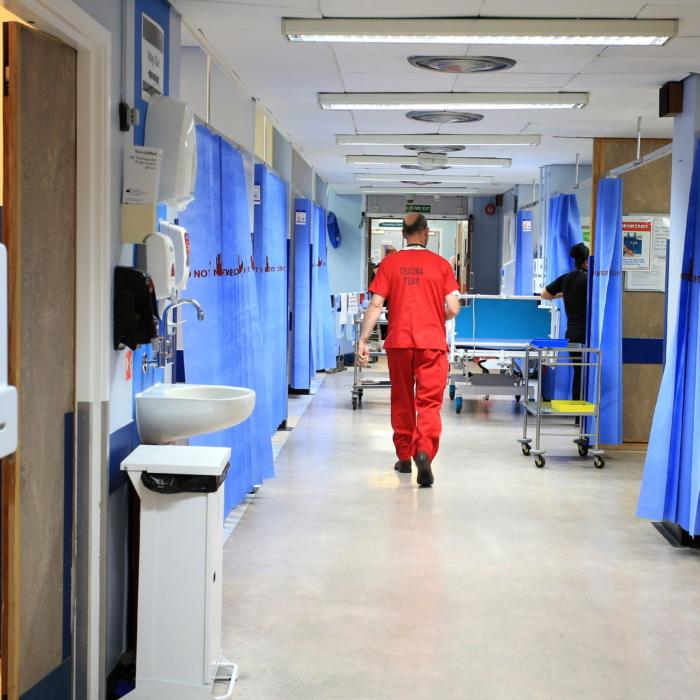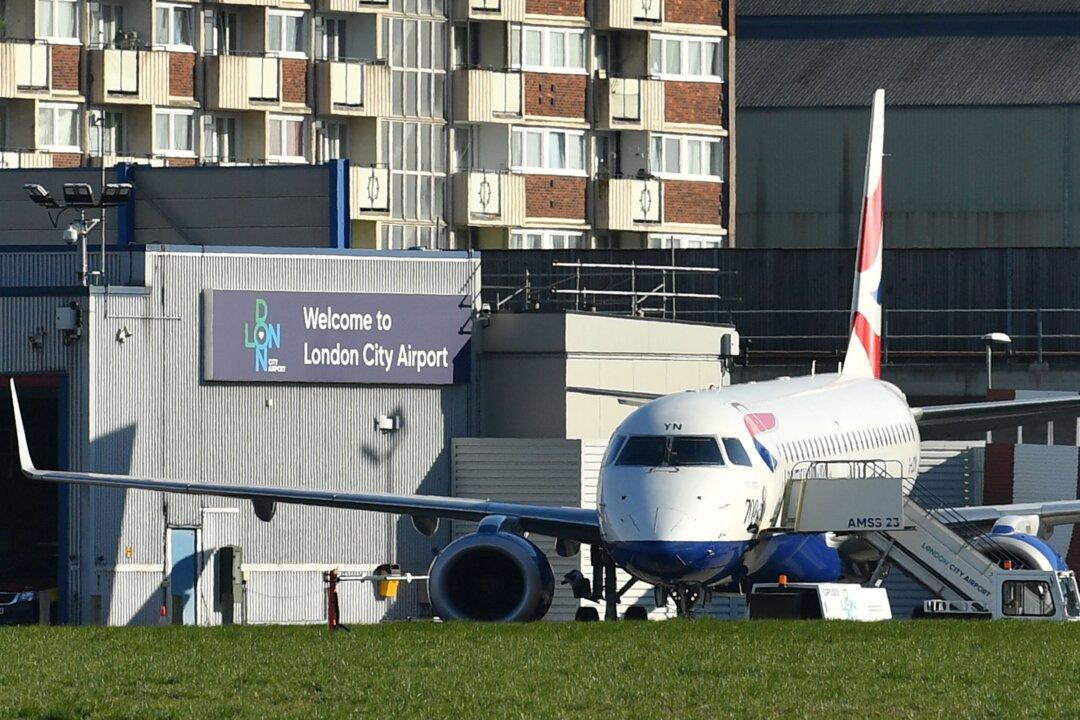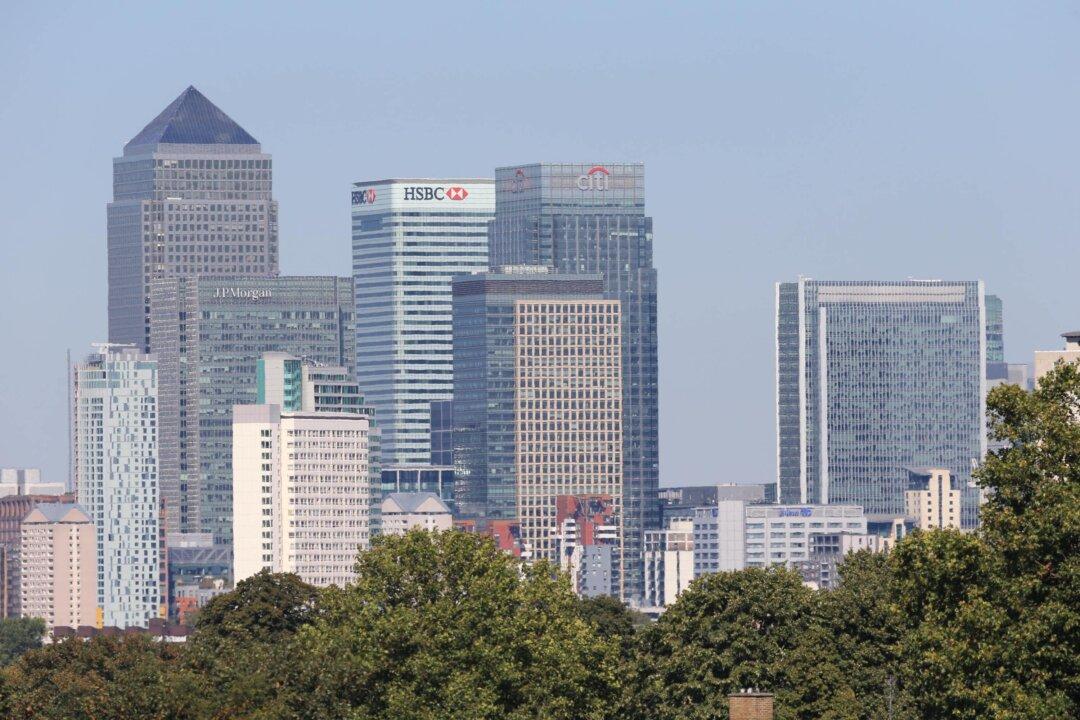A quarter of ambulance workers have witnessed the death of a patient caused by delays in the past three years, a study has shown.
A survey of almost 3,000 ambulance workers across the UK found that nearly half the respondents reported having to wait outside an A&E department for their entire shift.
Over 80 percent of the workforce said they had suffered verbal abuse, with one third saying they have been victims of physical attacks during the three-year time period.
The survey included data and testimonies from ambulance workers, as well as control centre workers, 999, and 111 call handlers.
One worker described being first on the scene at a cardiac arrest, which had been marked as code “yellow” for 10 hours, to find the patient dead, in rigor mortis, with the phone ringing in his hands.
Other workers described patients regularly dying in hospital corridors, patients being left for days outside in ambulances, and patients being told it would be quicker for them to make their own way to hospital, with some dying en route.
“These terrible, harrowing stories from our ambulance workers members lay bare the horrifying state of our NHS,” said GMB National Secretary Rachel Harrison in a statement on Monday.
“Fourteen years of the Conservative’s disastrous austerity experiment, rocketing demand and ambulance workers draining away from the profession has left a service barely able to cope.
“Whoever wins the election next month, we need to properly invest in our NHS if we want to keep it alive – and that starts first and foremost by investing in the workers themselves,” said Ms. Harrison.
‘Unbelievable Waits’
GMB member and ambulance worker Simon Day spoke at the GMB’s annual congress in Bournemouth on Monday, signifying that the mental health of first responders has been “frantically on the increase over the last few years.”Mr. Day said COVID-19 provided the “fuel for the fire” and that the cost-of-living crisis has “poured petrol on top,” making a bad situation worse.
He said that “ambulance workers are often the recipients of verbal and physical attacks as a direct result of these delays that are completely out of their control,” leading to a heightened level of stress in the workplace.
“Unbelievable waits for consultations, assessments, and treatment plans, which in turn create barriers in sickness management processes, play their part in worsening the whole issue.”
Mr. Day claimed that employers are “fundamentally failing” in their “duty of care” and treating those with mental health concerns as an individual’s “lack of resilience.”
In addition to the one in four ambulance workers who have witnessed a death owing to delays over the last three years, a further third (31 percent) know of a case where this has happened.
A London Ambulance Service NHS Trust report, released on June 6, showed improvements have been made in waiting times over the last year after an increase in funding.
The performance report, covered in the trustee board papers, displayed an improvement by about one minute for Category 1 call-outs in London, which came down to an average of 7 minutes and 29 seconds, from 8 minutes and 32 seconds. It also showed improvements in Category 2 call-outs, which were down by 13 minutes, and Category 3 call-outs, which improved by about half an hour.
Daniel Elkeles, chief executive officer of the London Ambulance Service, said in a statement emailed to The Epoch Times that “we have seen significant demand for our services in recent months and our teams have been working hard to meet this pressure and ensure everyone receives the care they need.”
“In April we saw around 10,000 more incidents than during the same month in 2023, while the 6,200 calls we answered on Friday 10 May, made it our busiest day of 2024, so far,” said Mr. Elkeles.
The Epoch Times has reached out to NHS England and the Conservative Party for comment on the GMB study.
The most common reason people turned private care was to avoid the NHS waiting list.
